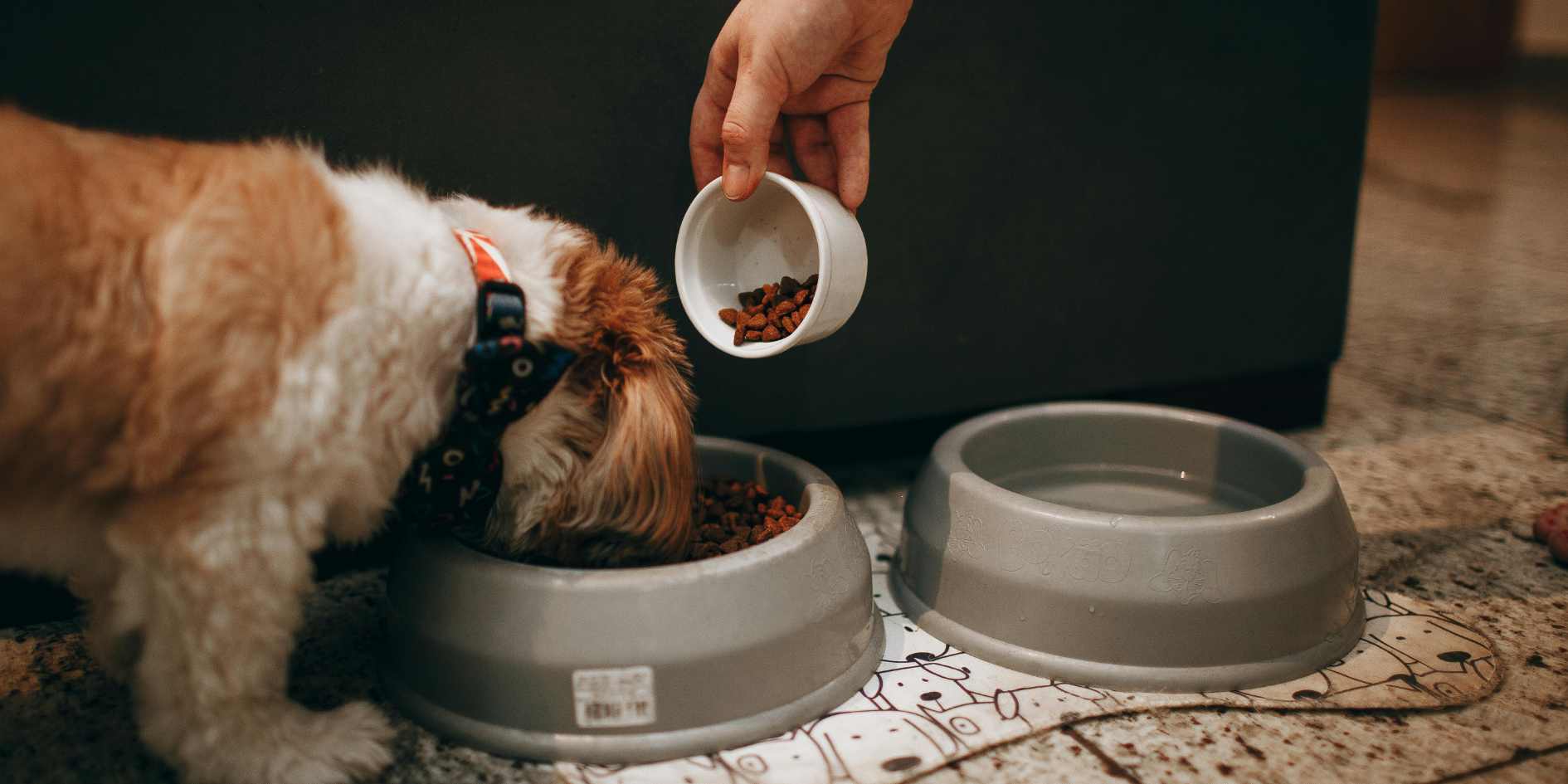When your dog is sick, it is natural to want the best care for them. Although prescription antibiotics are occasionally needed, More and more dog owners are turning to natural antibiotics as a gentler alternative to treat their pup in a gentler way than prescription medications, particularly in case of minor infections, skin problems, or as a preventive measure.
In this article, we will discuss the issue of natural antibiotics in dogs, how they act, when they are needed, which of them is safest and most effective.
What Are Natural Antibiotics?
Natural antibiotics are plant, herbs and other naturally-derived substances that have antimicrobial properties. They do not have the unpleasant side effects of pharmaceutical drugs which can help to fight off bacteria, viruses, and fungi.
Natural antibiotics have the advantage over prescription antibiotics, which may destroy both good and bad bacteria in the body of the dog, in that they can be more targeted and balanced to support the normal operation of the immune system.
Why Consider Natural Antibiotics for Dogs?
Dog owners have a number of good reasons to use natural options:
- Less side effects (such as diarrhea or upset stomach)
- Contributing to long term health without excessive use of drugs.
- Prevention of antibiotic resistance – the excessive use of antibiotics may result in bacteria becoming more difficult to kill.
- Home remedies to small and easy problems such as cuts, ear problems, or hot spots.
However, natural antibiotics are not a substitute for veterinary care in serious conditions. Essentially, you should never begin with a new treatment without consulting your vet.
Common Health Issues That Natural Antibiotics Can Help With
Natural antibiotics could be used to help dogs with:
- Hot spots or minor skin infections.
- Ear infections
- Urinary tract infections (UTIs) are common in dogs and can be caused by bacteria or other microbes.
- Respiratory or kennel cough.
- Cuts, wounds, or insect bites
- Yeast proliferation or fungi.
- Nausea and vomiting because of bacterial disturbance.
10 Safe and Effective Natural Antibiotics for Dogs

Now, we are going to explore the best natural antibiotics used commonly on dogs. The traditional use and a little newer scientific research support these.
1) Manuka Honey
Best for: Wound care, skin infections, digestive health, etc.
The Manuka honey which is produced in New Zealand is believed to have a strong antibacterial and healing effects. It may be used as a dressing or may be taken as a mixture with food (in small amounts) as a health measure internally.
- Natural hydrogen peroxide in the honey helps kill bacteria.
- Stimulates tissue growth.
- Calms reddened or stingy skin.
Note: Consume in little quantities as it contains natural sugar. Avoid in diabetic dogs.
2) Coconut Oil
Best for: Skin problems, fungal infection, immunity reinforcer.
Lauric acid found in coconut oil has antimicrobial, antifungal and antiviral properties. It is topically applicable or can be added to food.
- Helps treat dry, itchy skin
- Fights yeast infections
- Improves coat condition
Note: Start with 1/4 teaspoon daily per 10 lbs of body weight, mixed into food.
3) Oregano Oil
Best for: Respiratory infections, gut health, parasite control. The oregano oil is among the strongest natural antibiotics. It is highly anti-bacterial, anti-viral and anti-parasitic.
- Performs effectively against E. coli, Salmonella and other bad bacteria.
- Helps in support of immunity and digestion.
Note: Should be diluted with an oil (such as olive oil). Never give undiluted oregano oil to your dog—it must always be diluted.
4) Colloidal Silver
Best for: Eye infection, ear infection, cut, internal bacterial problems.
- Silver suspension in water is a colloidal silver which has long been a natural antibiotic.
- Destroys unwanted bacteria without destroying normal tissue.
- Topically or orally (in small, controlled doses) can be used.
Note: Too much use can lead to silver buildup in the body. Take under the supervision of a veterinarian.
5) Apple Cider Vinegar (ACV)
Best for: Skin lesions, ear congestion, mild infections.
Apple cider vinegar is a safe and all-natural antimicrobial. It may be diluted and used as a rinse or it may be used in small portions when added to food.
- Restores skin pH
- Fights bacteria and yeast
- May help repel fleas when used regularly.
Note: Use raw, unfiltered ACV (with the “mother”).
6) Echinacea
Best for: Immune system enhancement, respiratory disease.
Echinacea is a robust herb, which boosts the immune system and repels viruses and bacteria.
- Common in the treatment of kennel cough and colds.
- Tincture or in capsules.
- Safe in short-term doses
Note: Give in case of sickness or as a precaution in case of the flu.
7) Turmeric
Best for: Inflammation, infections, pain medication.
The Curcumin in turmeric has a powerful anti-inflammatory and antibacterial response. It is particularly helpful in infections which result in swelling or pain.
- Helps treat infections internally.
- Supports joint health
- Can be turned into golden paste in order to be absorbed more.
Note: 1/4 tsp/10lbs/kg divided into one dose, preferably at night.
8) Garlic (in very small amounts)
Best for: Internal parasites, immune boost
Garlic is a controversial one though in small, appropriately dosed amounts, it can assist in the war against bacteria and parasites.
- Natural antibiotic and anti-fungal.
- Supports heart health.
- Deters fleas and ticks.
Note: Never give large amounts. A safe dose is about 1/4 clove per 20 lbs of body weight, a few times per week. Always consult your vet.
9) Calendula
Best for: Do not use in skin irritation, wound healing.
Calendula is a moderate antibacterial and antifungal flower. It’s great for topical use.
- Apply as salve or tea rinse to cuts, scrapes or hot spots.
- Promotes fast healing
- Soothes inflammation
10) Ginger
Best for: Digestive infections, nausea, immune health.
Ginger is not only a tummy ailment, but it is even antibacterial and antiviral.
- Helps sooth gut inflammation.
- Promotes good immune system.
- May be grated or purée into minuscule portions in food.
How to Use Natural Antibiotics Safely
Natural doesn’t always mean risk-free.
Here are a few guidelines to keep your dog safe:
Talk to Your Vet First
Your vet must be informed even in case you are going natural. Certain natural remedies may have an interaction with drugs or exacerbate some conditions.
Use Proper Dosages
An excess of anything, even herbs, is bad. Take sound dosing advice or refer to an alternative vet.
Be Alert to Allergies or Sensitivities
Start slow. If your dog shows any reaction—like vomiting, itching, or lethargy—stop use immediately.
Choose Quality Products
Buy from reputable brands. Watch out to organic, non-GMO, and pet safe labels.
When not to Use Natural Antibiotics
While natural remedies are great for prevention and minor issues, there are times when they are not enough:
- Deep wounds, pneumonia, sepsis.
- Repeat ear infections or chronic UTIs.
- Medically treated parasites.
- After surgery or trauma
Prescription antibiotics can be lifesaving in these situations, and not using them could seriously endanger your dog’s health.
Natural vs. Prescription Antibiotics for Dogs
| Feature | Natural Antibiotics | Prescription Antibiotics |
| Source | Plants, herbs, natural minerals | Synthetic or semi-synthetic drugs |
| Strength | Mild to moderate | Strong, fast-acting |
| Side Effects | Few to none (if used properly) | Common (diarrhea, nausea, etc.) |
| Risk of Resistance | Low | High with overuse |
| Use Cases | Minor infections, prevention | Serious or life-threatening infections |










Leave a Comment